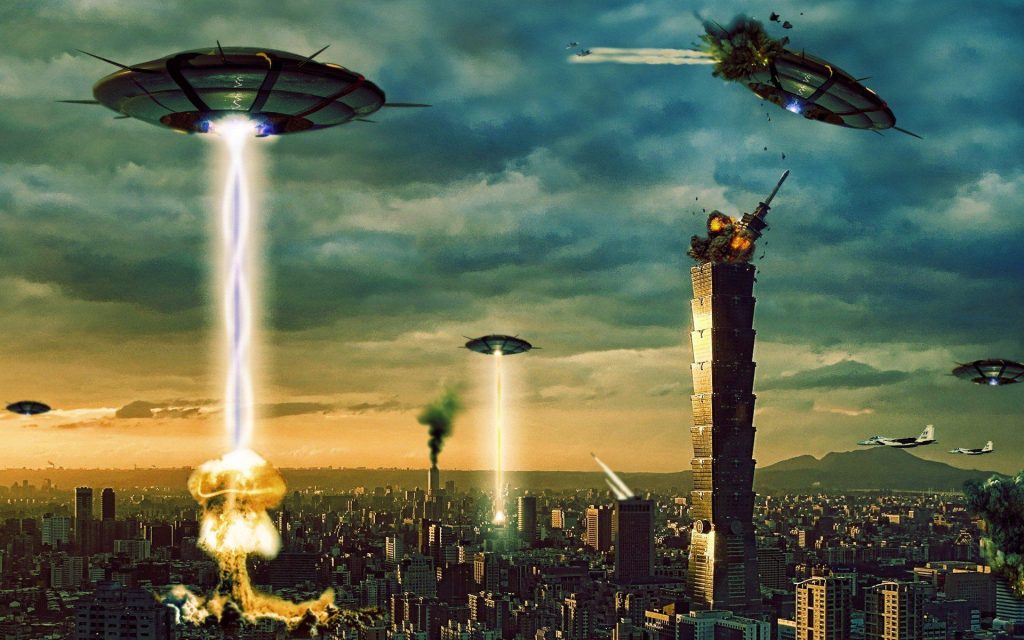
What if the sky suddenly darkened, not with storm clouds, but with alien warships intent on our destruction? Could humanity—the divided, bickering, often short-sighted species we are—truly stand a chance? Roger Valley’s powerful science fiction novel Deception: Karda vs Earth dares to answer that question. The answer isn’t a simple “yes” or “no.” Instead, Valley shows us a haunting possibility: survival isn’t just about brute force, but about deception, sacrifice, and unlikely alliances that stretch far beyond Earth. On the surface, Deception reads like the continuation of every alien invasion nightmare. The Karda, ruthless conquerors who enslave entire species and strip planets bare, descend upon Earth with revenge on their minds. Humanity, by comparison, is fragile—only recently in possession of scraps of alien technology discovered in a crashed spaceship in northern Ontario. The Karda have conquered worlds thousands of times before. By all logic, Earth should be no different, just another meal on their interstellar menu.
Yet Valley flips that expectation. He places ordinary humans, like Jerry—a trapper turned reluctant hero—into the heart of the conflict. Jerry’s discovery of Pyke’s journal in the first book changed everything. Pyke, a human slave who once sabotaged the Karda centuries ago, left behind not just technology but lessons in survival. Through Jerry, readers see how fragile humanity is, and yet how cunning it can be when cornered. The author’s message is clear: victory isn’t about overpowering an invader, but outsmarting one. The very title of Valley’s novel gives away the central theme. “Deception” isn’t a side note—it’s humanity’s most powerful weapon. When Jerry acts as Pyke to trick the Karda captain, Karj, into hesitation, it shows that strategy and guile can be as deadly as missiles. Every victory humanity ekes out in the book is hard-won through lies, illusions, and psychological warfare. The alien Beski, once slaves to the Karda, even note that while Earth’s technology is primitive compared to the invaders, their ability to deceive may give them an edge.
This mirrors one of Valley’s perspectives as an author: survival often depends less on physical might and more on resilience, cleverness, and a willingness to make hard choices. Humanity’s victory, if it can be called that, is never clean or easy. It’s full of moral compromises and haunting consequences. Another twist in Deception is the introduction of allies. The Permians, who have fought the Karda for centuries, and the Beski, who suffered under Karda enslavement, play crucial roles. The Permians offer hope, promising reinforcements that will take years to arrive. Meanwhile, the Beski represent something more immediate: trust earned through honesty. One of the most powerful scenes in the novel comes when the Beski ask Jerry if he is Pyke. Jerry, rather than continuing the lie, tells the truth: Pyke died centuries ago, and he only pretended to be him to deceive the Karda. This confession, risky as it is, secures their trust. Valley underscores a subtle but profound point—while deception may defeat enemies, trust is what secures friendships. Humanity cannot survive in isolation; survival requires alliances, even ones that seem doubtful.
What makes Deception more than a space battle novel is how it reflects the flaws of our world. When faced with extinction, the nations of Earth don’t suddenly become enlightened. Instead, they squabble, resist cooperation, and argue over resources. Valley paints a sobering picture: even in the face of annihilation, politics remains messy. The United Nations has to force rogue nations into line, cutting them off from access to alien technology if they refuse to join the planetary defense effort. It’s a mirror of our own world. Just as we struggle to unify against climate change or global pandemics, Deception asks: would we really unite against an alien threat? Or would our divisions doom us? Valley doesn’t sugarcoat the answer. Unity only comes when survival is the only option left.
Drawing on realistic descriptions of weapons and strategies, Valley grounds his science fiction in a sense of believability. From NASA’s frantic attempts to rescue alien ships, to the construction of Earth’s first star cruisers, readers see how human ingenuity can accelerate under pressure. Yet technology alone isn’t enough. Sacrifice becomes the recurring price. In one of the most chilling strategies, humans are even sent aboard Karda cargo ships as slaves—voluntarily—part of a larger deception to outwit the enemy. This is where Valley’s vision is both inspiring and unsettling. Humanity’s edge isn’t firepower, but its willingness to risk everything—lives, morals, even its own integrity—for survival. The twist is that such victories come at a cost that might change what it means to be human. So, could humanity really defend against an alien invasion? According to Deception: Karda vs Earth, the answer is yes—but not in the way Hollywood blockbusters would have us believe. We wouldn’t win with flashy space battles or miracle weapons. We’d win through deception, sacrifice, and uneasy alliances with those who have more experience than we do. In Valley’s universe, survival requires outthinking the predator, not outgunning it.